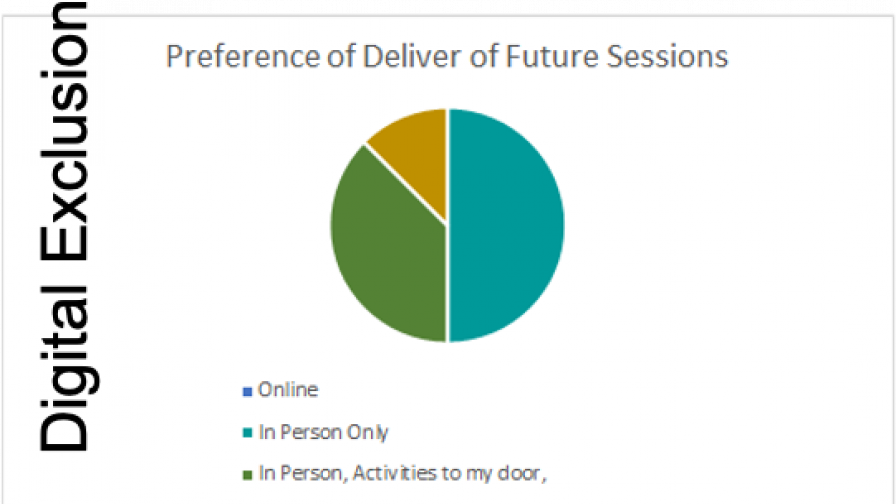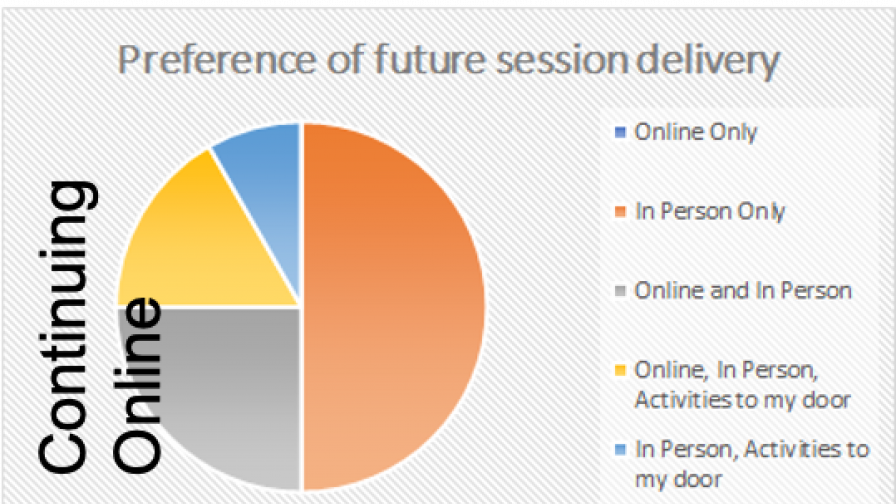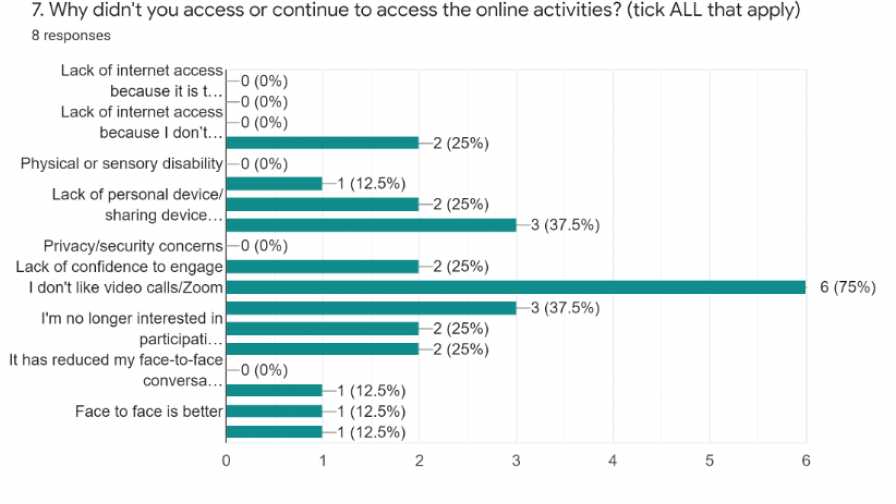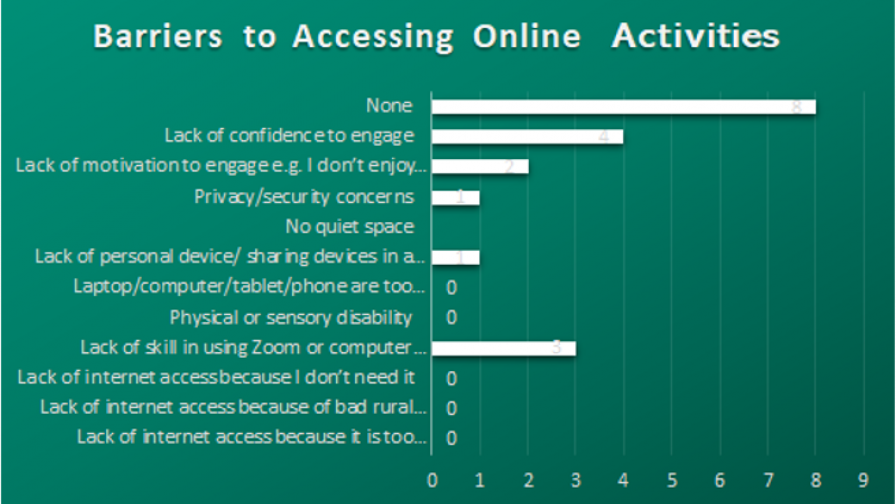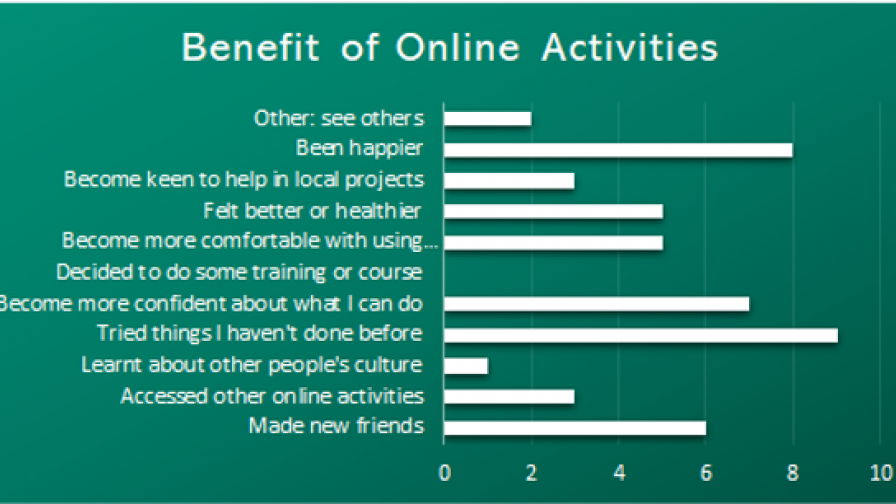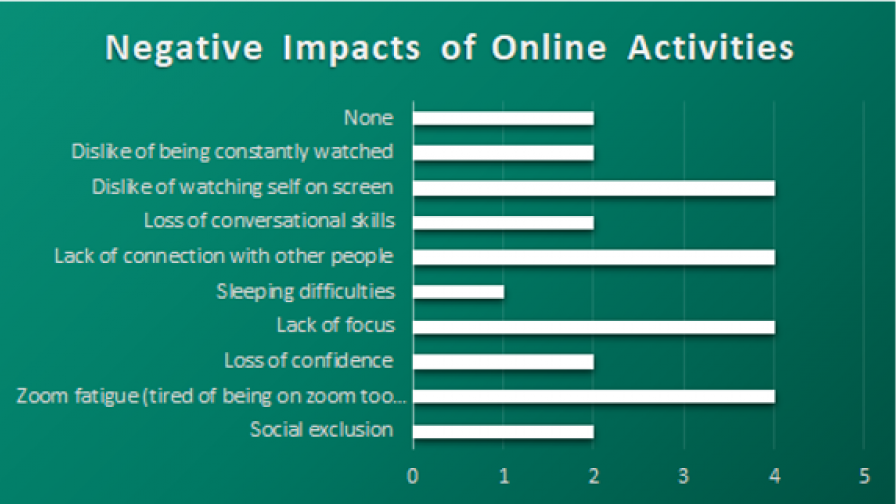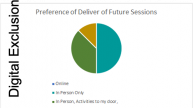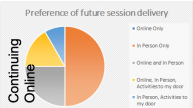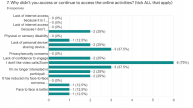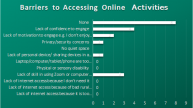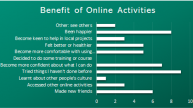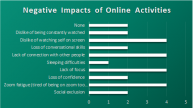Going online – Losses and Gains
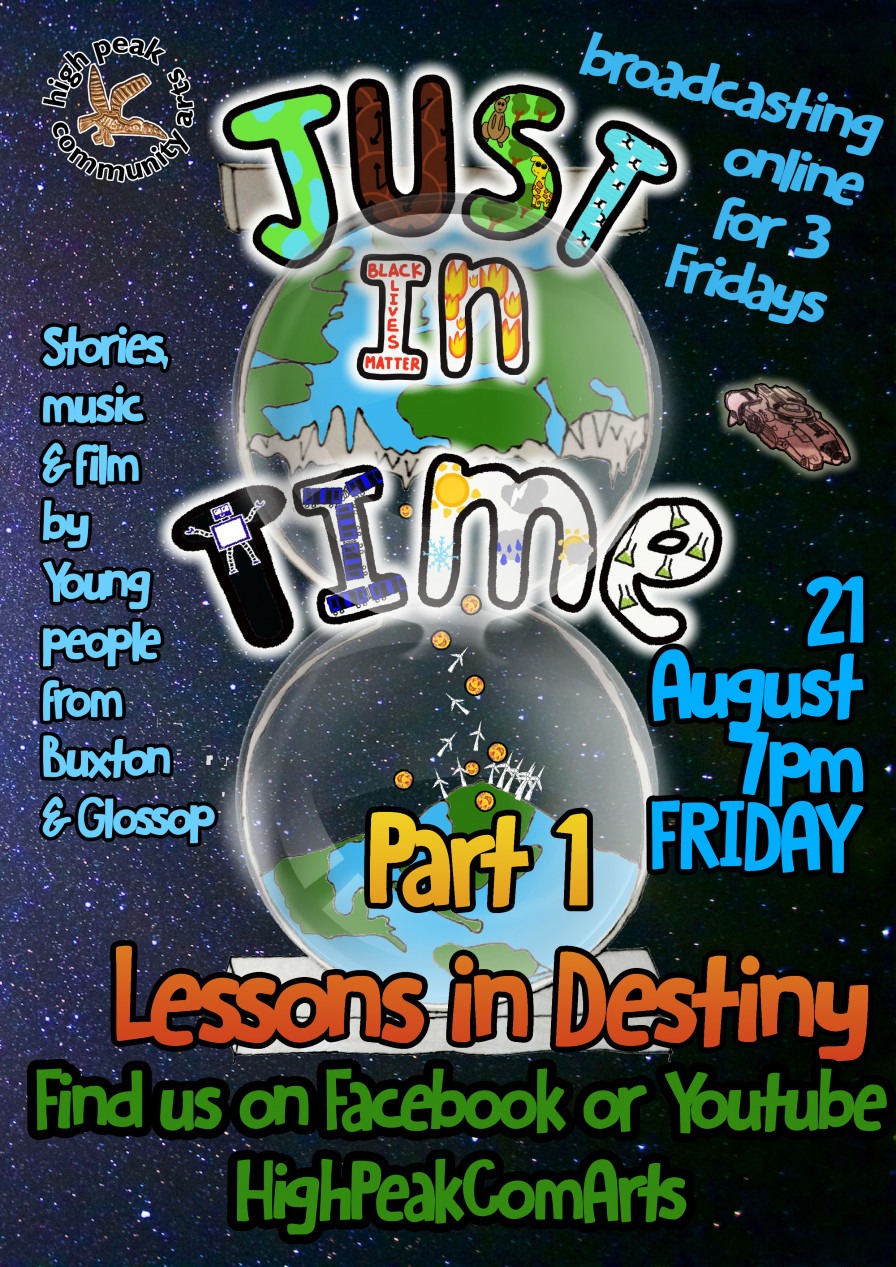
March 2020 I went on leave for a week and when I got back I thought my job had ceased to exist. “Maybe I’ll just volunteer my time to other groups, while I can’t work…” I thought.
I couldn’t conceive of running collaborative workshops online. I just couldn’t see how it would work.
And so the steep learning curve began – Youth Music seminar, after safeguarding re-write, after consultation phone call, after networking peer chat, after video tutorial, after trustee signoff – we began delivering workshops online.
Now, nearly a year later I can see what we achieved and how important it was - I can’t believe I assumed I would have nothing to do.
Some learning was gathered quickly, like understanding we could provide social connections for workers and young people alike. Using music and the arts made connecting with people outside of your household more meaningful, reinforcing a sense of worth and belonging. With a creative mindset our projects were an outlet, and without forcing the topic, responses to the global situation naturally came out.
On a technical and practical level we learned how to make collaboration work despite dodgy the connections and time lag. We used breakout rooms with small numbers, in short and direct activities of around 30 minutes, and whole group sharing at the end – participants appreciated both.
“I especially love the breakout rooms and the main room cos the breakout rooms are a lot calmer, the main room can be a bit hectic sometimes but I don’t mind since it’s nice to everyone at the same time.”
We also discovered that our participants could be exceptionally patient. They were willing to put effort into making things work and understood that we were making it up as we went along! Some workers even thought this is in itself helped build resilience. One participant said they actually found it easier to engage online than in person, and we noticed that many maintained better concentration in breakout rooms than they would face-to-face in a busy session with distractions.
Early feedback on joining online sessions included:
“It helps me because if I’m really bored or stressed out – I can forget about all that and chill out or focus on song writing.”
“It has helped me with the lockdown since this is the one thing I look forward to where I can do something different and creative.”
“Being able to go to film club through zoom has helped me not feel lonely.”
“It’s great to have a link to the outside world having not left the house (apart from to go in the garden) for 8 weeks.” [feedback from May 2020]
“I really enjoy the online sessions. It gives me something to do and I genuinely look forward to them.”
“Getting to talk to people and actually have something to do and get dressed properly for has been really helpful for my mental health.”
“Without [the sessions], I’d probably be in a far more dire mental state.”
The downsides were obvious – playing music together was impossible and the time delay also made it hard to assess engagement from all participants. Movement based activities didn’t work well, as everyone is in such different spaces at home and it was hard for a leader to boost confidence in the same way they would face-to-face. Differences in home environment also put some participants at a disadvantage. Interruptions from family; variable rural internet connections; and different types of device being used meant that not everyone could follow activities easily. Two siblings joining the session from one device was also problematic. Verbal activities such as creative writing definitely worked best, but this plays to some participants’ strengths more than others. Leaders hadn’t realised how much they rely on non-verbal cues for feedback, meaning in online sessions there is a risk the most vocal get heard even more.
We balanced these discoveries and pushed on with all our usual out-of-school projects planned for the year. Our Film Cuts Club made a magazine-style show in two episodes entirely over Zoom (Click here to view ‘The Here, There & Everywhere Show’). Our Tall Tales performing arts project made a three part film, with more than 10 original songs or pieces of music accompanying a story set in 2020 and two versions of 2070 (See videos above). In the summer school of Tall Tales we were able to mix online prep sessions with face-to-face days for playing and recording music and filming scenes. The amount and quality of work young people produced was something were all proud of and sharing the work in online broadcasts gave us some of the usual buzz of finishing these projects.
Overall only about half our existing participants tried online participation, and not all of those completed a project. Beyond the access issues of technology and internet, the interface is too challenging for some – especially younger participants and those on the autistic spectrum. Sessions are designed to enjoy and to boost self esteem, so if the whole set up creates frustration and confusion then it probably isn’t going to be of benefit! In November we had a placement of medical students from Sheffield University who did some research for us on digital participation, to see if our assumptions about people’s experiences were accurate. They designed two questionnaires, one for those who had participated online and one for those who hadn’t. Results showed that, of those who had not engaged with our online provision, most did not have a physical barrier, such as lack of internet or equipment, but rather they reported lack of confidence, dislike of Zoom or lack of a quiet space away from family. Of those who did participate, there were positives and negatives (see graphs below), but of both groups no one wanted to continue project work online if there was a choice.
Where are we now? Has working online revolutionised Community Arts delivery?
No.
As of January 2021 we are still delivering online and are as desperate to get back to face-to-face working as ever. We only recruited 2 new participants in the whole of 2020, both siblings of existing contacts and we lost contact with many. The keenest and most vocal gained a lot from meeting online. Persevering through frustrating technology and achieving high quality finished results did build resilience, and with fewer distractions these participants were prolific and benefitted from more one-to-one attention than is usually possible.
But even they missed so much from face-to-face working - the energy and bustle, chaotic rehearsals, live performance to a room full of people which has no online alternative. At the start of 2020 we had been working with 8 of our older participants as a group of young volunteers, a development which has had to pause with no clear starting point ahead.
So although we have kept the core of activity going, both the recruitment of early interest and progression for the most experienced has faltered, and it is this cycle which is at the heart of Community Arts.
Hands, Face, Space, Knees and Toes! Bring on the vaccine!
See below for our Top Tips for online workshops.

